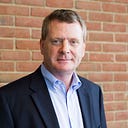Engineering Minds, Hearts and Hands
Last month, I had the opportunity to travel to Santiago, Chile, for the annual Global Engineering Deans Council (GEDC) conference. The conference was wonderful — I met extraordinary people from the public and private sectors, and reconnected with engineering deans and rectors from around the world. The experience was set against a backdrop of civil unrest quickly unfolding on the streets of downtown Santiago. The day I arrived, student protesters began demonstrating in response to an increase in subway fares. It quickly became apparent that the 4 percent fare hike was just the straw that broke the camel’s back.
The student protests gained traction and became mass demonstrations as over one million Chileans — frustrated with the increasing cost of living, low wages and pensions, underfunded education system and poor public health system — took to the streets.
Soon after the unrest began, Chile’s President Sebastián Piñera deployed troops and militarized police. Now, more than a month after the anti-government protests began, the unrest has left at least 26 dead and over 2,300 injured. While a relatively wealthy country in South America, Chile also has some of the greatest economic disparity. According to the Gini Index — the most widely used international measure of economic inequality — Chile ranks as one of the most unequal countries among a group of 30 of the world’s wealthiest nations. Its citizens are clearly frustrated with the economic disparity.
The turmoil and social challenges were formally addressed in several talks by local Chilean deans and invited speakers during the conference. Each stressed that engineering plays a big role in resolving the social and economic issues Chile is currently experiencing, as well as millions of others around the world. We’re sure to see more social unrest unfold around the world in the coming months.
As STEM professionals, we have an obligation to use our technical and professional skill set to improve the social good, building a world that is safer and more comfortable for all to live. The challenges that have led to this unrest are complex — and the solutions will be as well. But we are problem solvers, and a world with huge economic disparities, and uneven access to healthcare and education will not thrive.
At the conference, we discussed the UN Sustainable Development Goals (SDGs) as a universal framework to tackle the biggest problems facing our planet. Bringing the SDGs to fruition will require the skills of engineers and STEM professionals alike. Take, for instance, SDG 6 — clean water and sanitation, which are critical for global health and wellbeing. Engineers will be the ones developing projects to distribute water resources in an equitable and environmentally friendly way. This also ties into SDG 3 — healthy lives and well-being for all at all ages. Lack of clean water for drinking and sufficient water for sanitation results in more deaths than war, according to UNICEF. SDG 4 — quality education and SDG 8 — decent work and economic growth — go hand-in-hand. Ensuring inclusive and equitable quality education will lead to better jobs and sustainable economic growth. In fact, quality education is foundational to achieving each of the 17 SDGs, and it is at the heart of what we do at ABET. And building safe and sustainable infrastructure (SDGs 9 & 11) to provide equal access schools, clean water, healthcare and other basic human necessities is at the core of what engineers do.
Engineering covers an incredible breadth of areas and when we look at a problem holistically — taking into account the community and people within it — we will best be able to identify, implement and solve these global challenges. We must be sure to educate future engineers to address them as well, because the problems we’re seeing today are not those of isolated locales, but of the planet as a whole and all its global citizens. Working together, we can find innovative solutions and build a better future for all.
